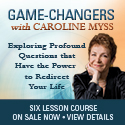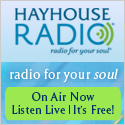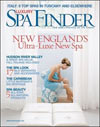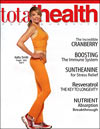Just what we need: more misinformation about Reiki.
This week, Reiki got a mention in the most mainstream of mainstream media, TIME magazine. That might be good news, except that TIME refers to Reiki as "faith healing."
News organizations are undergoing hard times and suffering extreme cutbacks these days, so perhaps the researcher who was supposed to have worked on the article was laid off before that assignment could be done. Maybe the editor, too. And the fact-checking department. In any case, the damage is done, and now it's once again up to Reiki practitioners to correct the record.
"Of course, they wouldn't call themselves 'faith healers'," the second paragraph begins. "They argue that the term dismisses what they do as simple wishful thinking. But practitioners of Christian Science as well as other alternative therapies — including acupuncture, biofeedback, herbal medicine, holistic medicine and Reiki, a Japanese healing and relaxation technique — are intent on influencing the coming health-care-reform process."
Whoa, Nellie! Let's take a look at that list:
- Christian Science: a religion. The article repeatedly refers to it as "a therapy."
- Acupuncture: a healing practice that dates back thousands of years in which belief is not required on the part of either practitioner or recipient.
- Biofeedback: a mind-body therapy recommended by, among others, the Mayo Clinic that also requires no belief on the part of the people who use it or the medical professionals who prescribe it.
- Herbal medicine: A healing tradition that dates back to long before recorded history, and that also does not require faith or belief on the part of the practitioner or recipient. Herbal medicine is the precursor of pharmaceutical medicine, and many pharmaceuticals were derived from herbal remedies.
- Holistic medicine: An approach to health care that considers the whole person, not just the specific illness, injury, or symptoms being treated in any given case. Holistic medicine has been increasingly accepted by and integrated into conventional medicine.
- Reiki: "A Japanese healing and relaxation technique," as described by the TIME article. That part is generally accurate. But Reiki is not "faith healing" because it does not require belief of any kind on the part of either the practitioner or the recipient in order to work, and it is most unfortunate that TIME mischaracterized it that way.
But faith does play a role in the article, because it's faith reporting: the reporter believes it, so it must be true.
Apparently neither the writer nor anyone involved with the editing process on this article had a chance to access to TIME's own archives. We found 124 articles that mentioned acupuncture, for example. Here are a few highlights:
- November, 2005: "There is growing scientific evidence that acupuncture, a pillar of Chinese medicine, can relieve many kinds of pain, but there's no clear agreement about how it works."
- October, 2004: "That acupuncture would relieve postsurgical nausea and vomiting was not entirely surprising to researchers at Duke University Medical Center. After all, they were stimulating P6, an acupuncture point near the wrist that is known to control nausea. It's the reason commercial anti-seasickness wristbands work."
- June, 1972: "For at least 21 millenniums [sic], Chinese physicians have used acupuncture to relieve pain and treat conditions ranging from arthritis to impotence."
Those are just a few examples, and note that there is no mention of faith healing in those older TIME articles.
As for the question, however misstated, behind that article -- should Reiki be covered under whatever insurance system emerges from the current health-care reform effort? -- my research is anecdotal, but every week I get at least one call or email from someone asking if I "accept insurance" for Reiki treatments. It's not that Reiki practitioners don't accept insurance payments, but that the insurance companies don't accept Reiki. If that ever becomes an option, there will almost certainly be some Reiki practitioners who don't accept insurance payments, just as there are some doctors and dentists who don't.
Insurance coverage for Reiki could actually end up saving providers money. For example, many patients who receive Reiki treatments before, during, and after surgery have needed less pain medication and suffered fewer complications. Will the people putting together a new American health insurance system take such factors into account? We'll keep following that story, and meanwhile, I'll be writing a letter to the editor of TIME to complain about that article.
































3 Comments:
Quite true. Reiki is not a Faith Healing, even the NIH/NCCAM defines it as a form of Energy Healing not Faith Healing. A tottaly differnt aspect of CAM.
I just included your blog post in an article. http://tinyurl.com/oduxra
JoAnne Robinson
The real problem is that Time is not outright "saying" that Reiki is the same as Christian Science Healing.It only seems that way because all the therapies are in the same sentence "Christian Science and other alternative therapies..."
Christian Science Healing is attached to a religion, but the patient doesn't have to be a Christian Scientist for the "healing" to work; I know of at least two cases in which the practitioner was a Christian Scientist and the patient was not. In one case, a non-believer simply attended a service and never again had the migraines that had dogged him for years, one of which he had when his aunt dragged him, reluctantly, to church that night. (He did not join the church.) I'm not sure what you call that, but you can't call it "faith healing" if the other person doesn't believe in the same "faith" as the practitioner. In another case I heard about from the son of the patient, the "patient" was being given an "absent healing" at the request of his son and had not even been told it was going to happen.
Post a Comment
<< Home